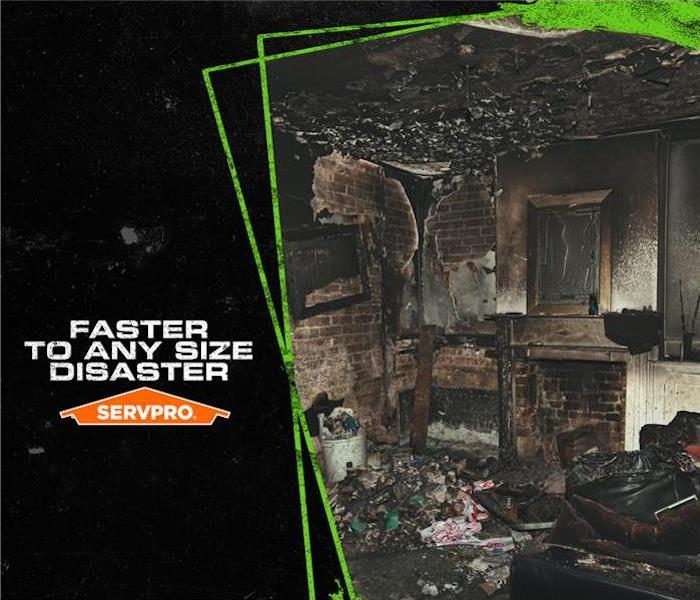Removing Fire Damage from Surfaces in Salem
8/16/2022 (Permalink)
 Call the FRST fire and smoke damage restoration technicians from SERVPRO for Salem house fire cleaning and restoration.
Call the FRST fire and smoke damage restoration technicians from SERVPRO for Salem house fire cleaning and restoration.
SERVPRO Provides an Expert Fire Damage Restoration Service
When properties catch fire, one of the leading causes of damage is smoke-related. Combusting materials release toxins into the environment in the form of smoke. Hot smoke travels quickly from the source through the home, leaving behind thick, odorous residues on surfaces. Using a professional restoration service can help make these damages "Like it never even happened."
Homeowners with fire damage in Salem can reach out to SERVPRO to help rescue their structure and contents. You can carry out several tasks to reduce the impact of smoke on your home and belongings. Light vacuuming is a simple but effective way to remove light and dry soot from surfaces. The goal of eliminating these dry, unattached particles with a vacuum cleaner is to prevent them from gradually dropping onto floors and surfaces below. In areas with high foot traffic, loose soot can be driven into carpet fibers or floors, making restoration much more challenging and work-intensive.
Another simple mitigative procedure is to open windows which helps to disperse unpleasant odors naturally. Tackling smoke residues with household cleaning products is not recommended as there may be an adverse reaction that ultimately causes more harm than good.
Meeting the Cleanup Challenge
Our technicians are adept at dealing with the challenges of cleaning complex soot and smoke residues. Cleaning porous surfaces with smoke damage are perhaps the most challenging aspect of restoration. Material porosity absorbs smoke particles and cleaning agents. Unfinished woods, common in cabinet interiors, plasterboard, carpets, and acoustical tiles or masonry are all porous materials in the home. Generally, these materials require a dry-cleaning solution as the absorption of cleaning agents can lead to discoloration or, in some cases, deterioration of the material. One dry cleaning solvent we use is denatured alcohol which can be applied directly to unfinished wood surfaces and allows us to clean with a dry sponge without causing damage. Other materials such as plasterboard can be salvaged if the soot is not embedded into the gypsum.
Fire Damaged Porous Materials and How to Clean Them
- Acoustical tiles that can soundproof walls are best cleaned using light peroxide to remove smoke residues. If embedded with soot, disposal is the required method of remediation.
- Carpeted walls can absorb large amounts of moisture, especially if treated with a fire retardant. We identify the types of fiber and adhesive to determine the best cleaning action.
- Concrete and masonry have a sliding scale of cleaning actions that increase aggressive and agitative methods.
If the ignition source is furnace-related (puff-back), it is common to find that the masonry surrounding the surface is damaged. Mortar, bricks, marble, and cinder block are common types of masonry found in the home. If dry cleaning with sponges is not possible, we may resort to an alkaline cleaning agent alongside water to remove soot, then rinse the surface with pressure washers or hoses. Since water and alkaline cleaners can discolor masonry, it is vital to pre-test these methods on an inconspicuous part of the material before applying them to the entire surface. Using solvents on surfaces also requires dwell time and correct mixing of solvents to ensure the best results.
Aggressive Cleaning Methods for Masonry
- For stone and brickwork, high acidic solvents can help remove smoke damage.
- Avoid using acids on polished marble or porcelain as they may corrode finishes.
- Abrasion blasting is the most aggressive action that changes the material's surface. Dry ice pellets offer the most practical non-moisture abrasion method. This can be damaging in itself if the material has historical value.
Property fire damages can become permanent without professional intervention. Contact SERVPRO of Salem / Peabody / Marblehead for fire damage restoration at (978) 744-4545.






 24/7 Emergency Service
24/7 Emergency Service